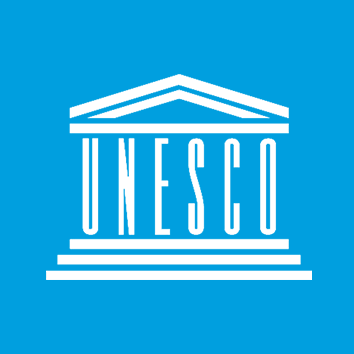UNESCO’s mission is to contribute to peacebuilding, poverty reduction, sustainable development, and intercultural dialogue through education, science, culture, communication, and information.
Official Name
United Nations Educational, Scientific and Cultural Organization (UNESCO)
Areas of Activity
- Education: UNESCO works to ensure access to quality education for all. This includes supporting universal education, promoting educational innovation, and ensuring equal learning opportunities.
- Science: Supporting scientific research, development, and technology. This involves programs on water resource management, environmental studies, and fostering scientific cooperation.
- Culture: UNESCO works on preserving cultural heritage, both tangible (monuments, archaeological sites) and intangible (traditions, linguistic practices). Key programs include the World Heritage List and promoting cultural diversity.
- Communication and Information: UNESCO promotes freedom of expression, media development, and access to information. This includes supporting independent journalism and advancing information technologies.
- Social Sciences: The organization addresses social development issues, including human rights, gender equality, and cultural dialogue.
Leadership
Director-General: Audrey Azoulay
History
UNESCO was established on November 16, 1945, in London to promote peace and security through international cooperation in education, science, and culture. Its creation was a response to the need to rebuild and develop these areas following World War II. UNESCO began its activities in Ukraine in 1954, when the Ukrainian SSR joined the organization. Today, UNESCO supports numerous projects in Ukraine, including in the areas of cultural heritage preservation, education and science development, as well as cultural diversity and environmental protection.



